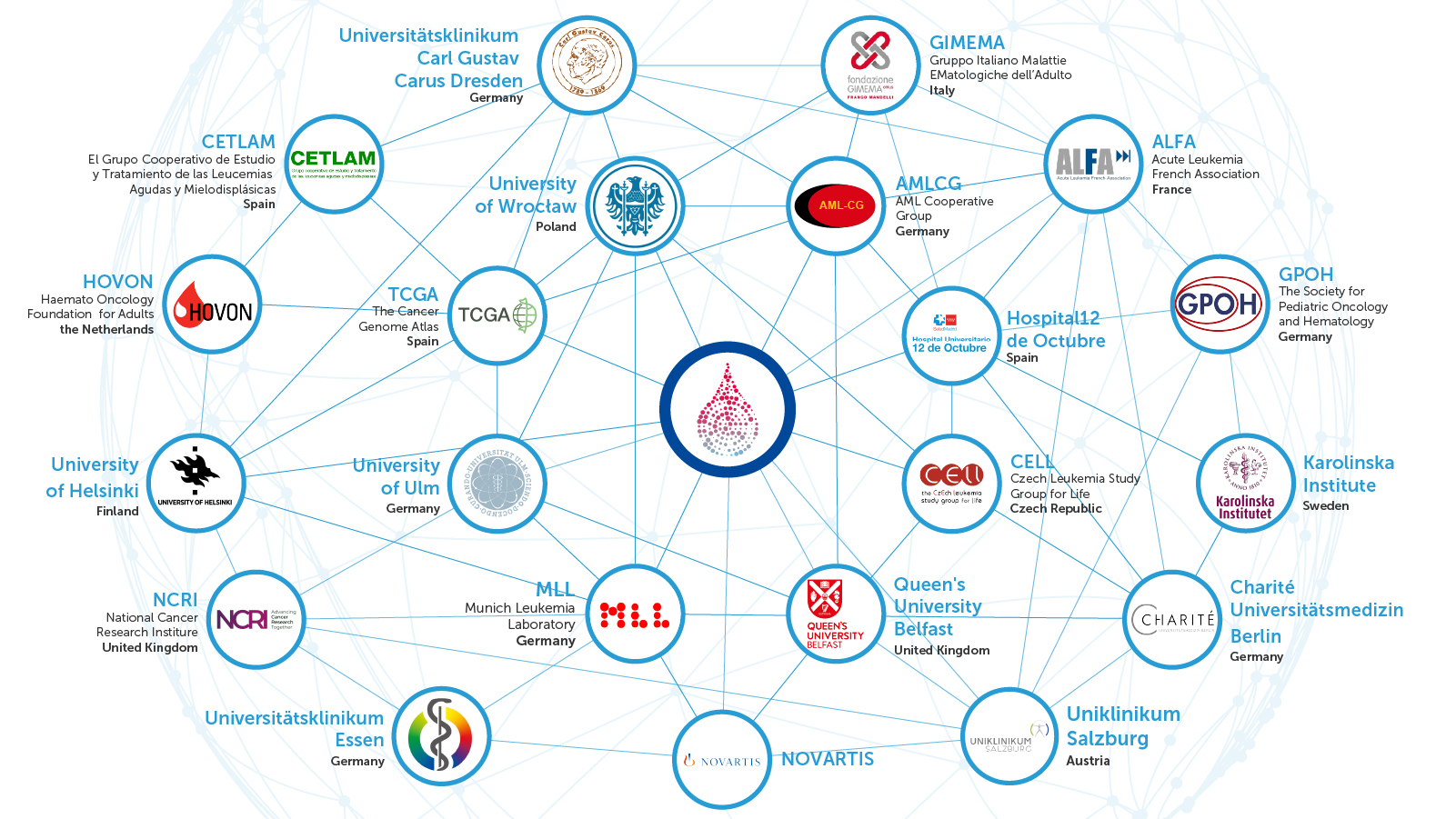Home> Research Projects> AML-1: Use of Big Data to revise treatment strategies in Acute Myeloid Leukemia
Previous studies have identified the need for a large number of patients to be recruited in order to fully understand the heterogeneous nature of AML and the potential gene–gene interactions that might influence treatment outcome. It is also necessary to establish a framework to facilitate development and analysis of the HARMONY Big Data Platform.

Lars Bullinger, Charité University Medicine, Berlin, Germany: “Our pilot study will have the power to better capture the heterogeneity of hematologic malignancies such as acute myeloid leukemia, thereby leading the way to improved individualized patient care and providing proof that the European Innovative Medicines Initiative HARMONY can really make use of Big Data for Better Outcomes.”
Acute myeloid leukemia (AML) has poor survival rates and is characterized by a rapid onset of uncontrolled proliferation of hematopoietic progenitor cells due to defects in their maturation program. AML develops from hematopoietic stem cells which have acquired somatic mutations, and so is an extremely complex and heterogeneous hematological malignancy, both biologically and clinically. This heterogeneity can have a significant effect on patient outcomes as, despite the presence of any single mutation, there is no guarantee that a patient will respond to a therapy that has been designed to target patients with that mutation.
Studies to examine the underlying genomics of AML have been conducted, however, these have shown that even relatively large clinical trials may fail to capture fully all somatic mutations associated with AML due to its heterogeneity. It is hoped that the transfer of data on 5000–10,000 patients with AML into the HARMONY Big Data Platform will improve the knowledge of the gene–gene interactions that occur and may provide a means of predicting the likely response and outcome of patients following treatment with specific therapies. In addition, improved knowledge of a patient’s disease may assist in the move towards more personalized treatment approaches and novel combination regimens.
The AML patient data entered into the HARMONY Big Data Platform will be derived from clinical studies conducted by the German-Austrian AML Study Group (AMLSG), the Haemato Oncology Foundation for Adults in the Netherlands (HOVON), the Medical Research Council (MRC), as well as data from other European Cooperative Working Groups and big academic institutions. Data from public repositories and studies sponsored by the European Federation of Pharmaceutical Industries and Associations (EFPIA), such as the Novartis-sponsored RATIFY trial, will also be included.
The key objective of this study project is to examine the gene–gene interactions that underlie the heterogeneity of AML. Data collected will encompass demographic and diagnostic variables, including karyotype, cytogenetic risk and genetic risk, together with treatment that the patient may have previously received. Molecular genetic information derived from targeted re-sequencing technology will also be examined. In addition, this project is a proof-of-concept for the HARMONY Big Data Platform and, as such, will assist in the development of the legal and ethical framework that is required to address any issues that may arise from the proposed secondary use of patient-derived data entered into the HARMONY Big Data Platform. No raw sequence data will be included within the proof-of-concept part of this project.
The aim of this HARMONY Research Project is to allow a thorough analysis of the heterogeneous nature of AML, the somatic mutations acquired by individual patients, and an assessment of gene–gene interactions and their impact on patient care. By gathering this knowledge, it is hoped that it will be possible to further refine the molecular landscape and classification of AML. Moreover, patients with aggressive cases of myelodysplastic syndromes (MDS) are often treated using a similar approach to that used when treating leukemia. The HARMONY Big Data Platform will provide the opportunity for clinicians to examine how cases of MDS treated in this way compare to the outcomes observed for patients with AML who receive an identical treatment regimen; this analysis may provide a basis for linking AML data with that for MDS.